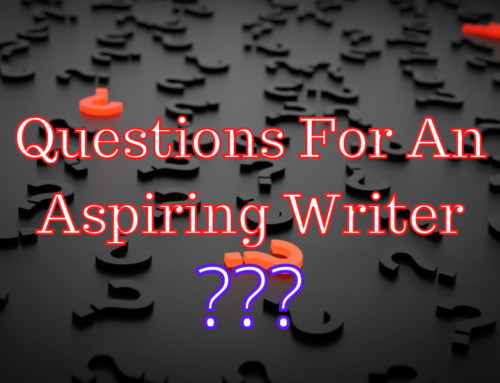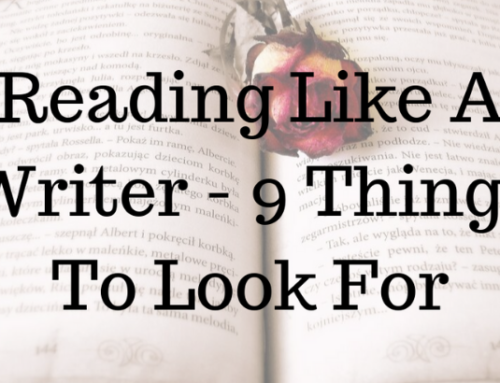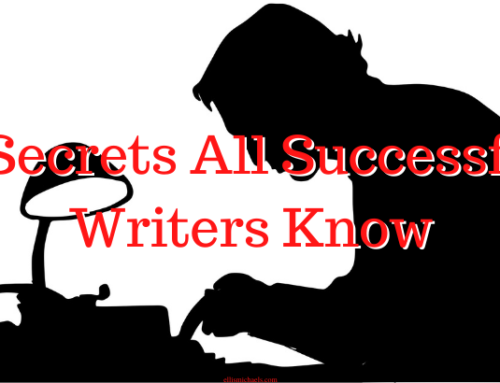I read a lot of books – always have and likely always will. There’s nothing like holding an actual book in my hands. I love everything about it: the smell of the paper, flipping the pages, all of it.
It’s no wonder I always wanted to become a writer. Most writers are avid readers. If you’re a writer or at least an aspiring one, I’m guessing you like to read a lot, too. That’s why I’ve put together this list of 10 books that every writer should read.
I started writing professionally in 2014 but didn’t start really writing fiction until 2018. In other words, I’m still relatively new to all this. As such, I’m always trying to learn more and reading is my favorite way to absorb information.
I’ve read dozens and dozens of books about writing over the past five years. Not just about the craft of writing, but the business aspects of it, marketing, networking, website building, and other related topics. The books on this list represent the best of what I’ve read so far.
10 Books Every Writer Should Read
Table of Contents
There have been a lot more than ten books published about writing. Hell, there will probably be more than ten books published on the subject today. But the ones on this list are among the best. Of the dozens and dozens of books about writing, book marketing, the publishing business, and other related topics I’ve read, these are the ones I’ve found most helpful.
1. Save The Cat! (by Blake Snyder)
The subtitle of Save The Cat is The Last Book On Screenwriting You’ll Ever Need. Though I’m not a screenwriter (although I’d love to write a screenplay in the future), I learned a ton about story structure from this book.
Blake Snyder, a veteran screenwriter, breaks down his art in this easy-to-digest book. He noticed that every successful film had the same underlying structure. Blake breaks down that structure into fifteen beats and explains each one clearly, giving plenty of examples.
Whether you’re an aspiring novelist, screenwriter, or writer of another type of fiction, I’d highly recommend this book. It’s generally considered one of the best books on story structure and it’s helped me to improve my writing a lot.
2. Save The Cat! Writes A Novel (by Jessica Brody)
I just finished reading this book last week. Jessica Brody, an accomplished novelist, takes Blake Snyder’s fifteen story beats and applies them specifically to novels. It’s another easy read and she provides plenty of examples from popular books.
If you are or want to be a novelist, definitely give this book a read – or two. I’ll definitely be adding this one to my writing reference shelf.
3. The Breakout Novelist (by Donald Maass)
This one, I read right before Save The Cat! Writes A Novel. It’s an excellent all-around guide to writing a breakout novel. Donald Maass is not only a veteran literary agent, he’s also authored over a dozen novels.
This book examines breakout novels in a variety of genres. It looks at the things they have in common and the reasons why they became so popular. Though he can’t guarantee success, Donald Maass explains very clearly how to increase the chances that your book will become successful.
I’ve read one other book by Donald Maass that I’m not going to include on this list but I will mention it here: The Emotional Craft Of Writing. It’s a excellent book on writing fiction that grips people’s emotions. A lot of the stuff covered in it is also talked about in The Breakout Novelist, which is why I’m not listing it. However, if you want to write emotional fiction, I’d definitely recommend it.
4. How To Market A Book (by Joanna Penn)
This book was great. I really liked Joanna’s writing style and found it very easy to read. It covers a lot of material and is the best single source on book marketing that I’ve found.
Joanna Penn is a very successful writer who publishes both fiction and non-fiction. She has a number of non-fiction books about making a living as a writer published and also publishes fiction under the pen name, J.F. Penn. How To Market A Book is the first book I’ve read by her but it certainly won’t be the last.
This book takes an in-depth look at what many writers dread: book marketing. It’s one of my least-favorite parts of the whole process but, unfortunately, it’s necessary. Joanna breaks down book marketing into neatly-packaged chapters and almost makes it sound fun at times. Whether you self-publish or go the traditional route, if you want to sell books, you should read this book.
5. On Writing (Stephen King)
This is considered by many to be the best book available on the craft of writing. Written by the King of Horror himself, Stephen King reflects on his years of writing fiction and gives the reader a number of guidelines to follow.
Stephen King’s writing has always been hit or miss with me. I’ve read maybe ten or twelve of his books over the years. Half of them I thought were brilliant and absolutely loved. The other half, I thought sucked. This one, I find to be somewhere in the middle. It is packed with useful advice but there are some suggestions I don’t agree with.
For example, in On Writing, Stephen says that adverbs should be avoided at all costs. I disagree, strongly. I know, I know: Who the hell am I to disagree with one of the most successful writers of all time? I’m a writer and a reader with my own opinion, that’s who! I like adverbs and think they can add a lot to a sentence or phrase. But like anything, adverbs can definitely be overused.
Overall, this is a great book about the craft of writing. I think most writers could learn something from it. I certainly did. Maybe, in a few decades when I’ve been writing as long as Stephen King, I’ll come to agree with him about adverbs. You never know!
6. How To Make A Living As A Writer (by James Scott Bell)
This is a short, easy-to-read book that tells you what you must do to make a living as a writer. James Scott Bell is a bestselling novelist and a columnist for Writer’s Digest. He breaks down exactly what you have to do if you want to be a successful writer like him.
How To Make A Living As A Writer isn’t a very long book and doesn’t go into too much detail. However, it’s a great book for aspiring writers to read through, especially those who are just starting out. I wish that I’d read it a little sooner than I did. But better late than never!
7. How To Write Science Fiction And Fantasy (by Orson Scott Card)
If you write science fiction and/or fantasy, this book is a must. How To Write Science Fiction And Fantasy came out in the early 1990’s, but it’s just as relevant today as it was then.
Orson Scott Card is a well-known novelist. He’s the author of several popular bestsellers, including the incredibly-popular Ender’s Game and the Pathfinder Series.
In How To Write Science Fiction And Fantasy, Orson goes into detail about what it takes to write sci-fi and fantasy stories that people want to read. I thought his writing style was a bit heavy at times. There were sentences I had to read two or three times to fully understand. But, all things considered, this is an excellent reference for anyone who wants to write emotional sci-fi and fantasy that keeps the pages turning.
8. 5,000 Words Per Hour (by Chris Fox)
This is the first book in Chris’ seven-book Write Faster, Write Smarter series. It’s a short, light read packed with all sorts of useful information – just like all the other books in the series.
In this book, Chris tells you about how he managed to get his writing speed up to 5,000 words per hour and how you can, too. This was one of the first books about writing that I read and, while it didn’t get my writing speed up to 5,000 WPH, it did significantly increase my writing speed.
I’d recommend this and all the other books in the Write Faster, Writer Smarter series to anyone who wants to make money with their writing. The third book, Write To Market, I’d especially recommend to anyone who wants to make a career out of writing.
9. Take Off Your Pants! (by Libbie Hawker)
In the world of fiction, there are two types of writers: plotters and pantsers. Plotters write outlines of what they’re going to write before they even start, while pantsers write by the seat of their pants, making the story up as they go along. Libbie Hawker argues that it’s better to be the former and tells you exactly how to do just that.
In Take Off Your Pants!: Outline Your Books For Faster, Better Writing, author Libbie Hawker tells you everything you need to know about writing effective outlines. While I prefer to write mostly by the seat of my pants, I’ve incorporated this books underlying lesson into my process. And that lesson is that it’s easier to stay on track and harder to get lost when you’ve got at least a basic outline to work off of.
Whether you consider yourself a plotter or a pantser (or don’t know which you are, yet), this book will help you become a better writing. It forced me to really examine the way I do things and I made some game-changing corrections as a result.
10. Influence (by Robert B. Cialdini, Ph.D.)
This book isn’t about writing, but I’ve decided to include it anyway. If you want to be a successful writer, the lessons you learn from this book will help you get there.
Robert Cialdini, Ph.D is a professor of psychology and marketing at Arizona State University. In Influence: The Psychology of Persuasion, he goes into detail about six universal principles of influence and persuasion. What does influence and persuasion have to do with being a successful author? Everything.
If you’re like me, you don’t just want to write books. You want people to actually buy them, read them, and enjoy them, too. In order to get people to do this, you have to first get them to see your book (influence) and then buy and read it (persuade).
I studied psychology in college myself, so this information was nothing new to me. But Professor Cialdini presents it in an easy-to-understand way that makes applying it to your particular circumstances a breeze. I’d recommend this book to not only writers, but anyone who wants to be successful at, well, anything.
Conclusion
I absolutely love being a professional writer (here are ten reason why it’s awesome). But it requires a lot of work and a lot of continuing education. Fortunately, there is no shortage of books written about writing to help further that learning.
Writing this list of 10 books every writer should read made me realize that I could have just as easily listed 30 great books for writers. Hell, I could’ve listed 30 great books written only by writers that are already on the list! But these 10 are the ones that have helped me the most and the ones that I personally recommend to anyone who is or wants to be a writer.
I’ll be writing a lot more about my writing journey and everything that helps me along the way, so please subscribe below to keep up with future articles. I may even write a 10 More Books Every Writer Should Read post at some point!
Have any of the books on this list helped you to become a better writer? How about books not on this list? Please leave yours answers in the comments section at the bottom.
Join the Ellis Michaels mailing list to be the first to know about new writing articles and resources, tips for aspiring authors and writers just getting started, and a lot more.
[This article was originally published on March 15, 2019. Updated October 18, 2021.]












Leave a Reply